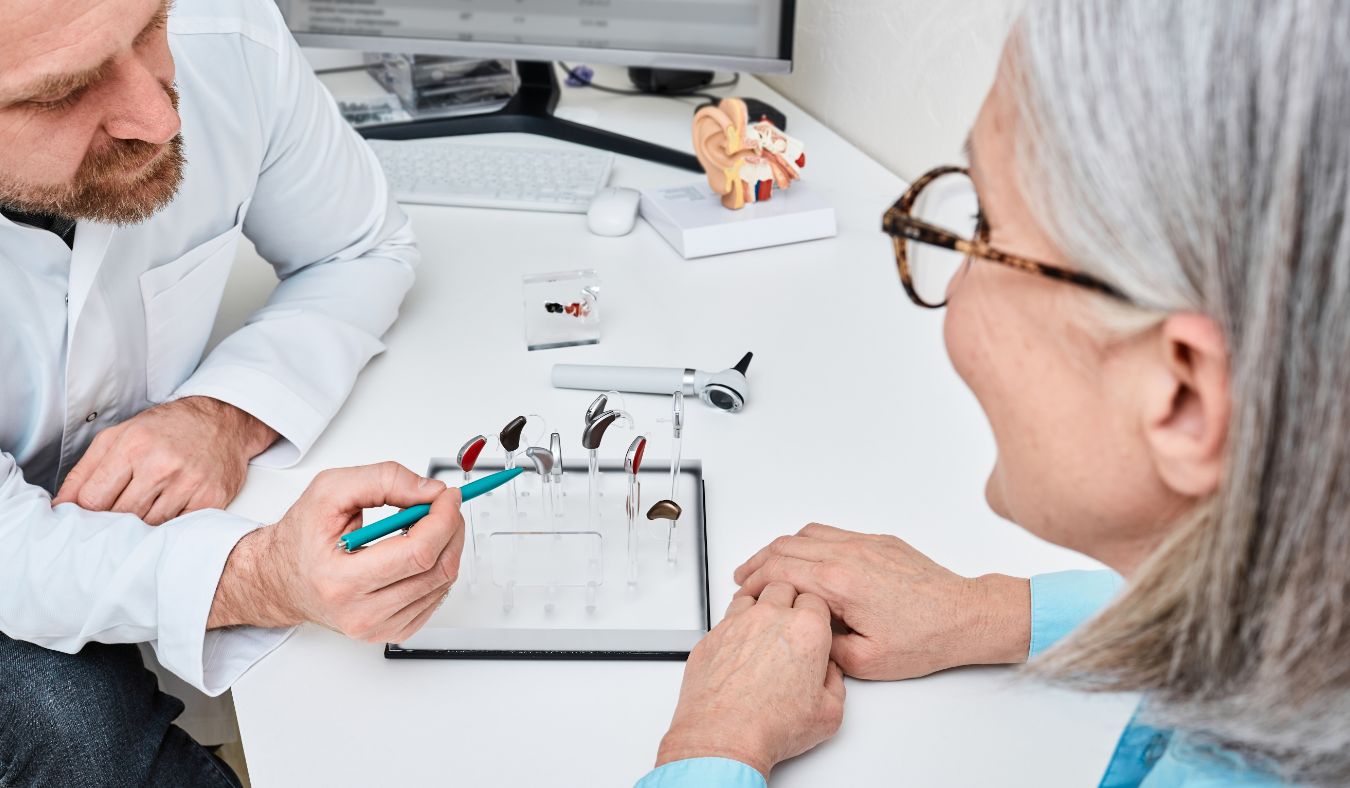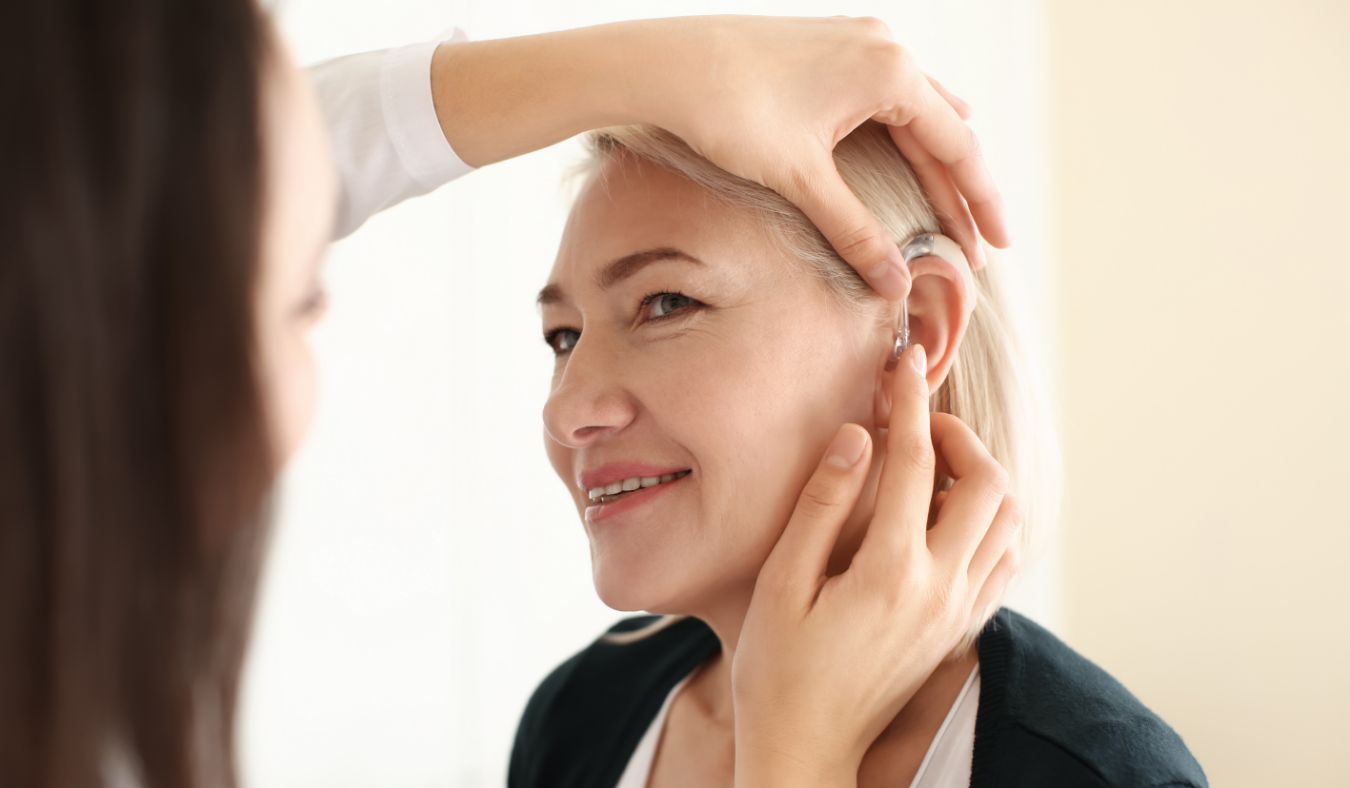Audiology Services: Hearing Care to Stay Connected
Hearing changes often happen in tiny increments. So small that you might

By: admin | September 24, 2025
Musicians face a tricky situation that most people don’t have to think about. Your ability to make music depends on hearing every detail, from subtle pitch changes to the timing between different instruments. But the very thing you need for your craft can slowly damage your hearing over years of exposure. Whether you’re playing in a band, teaching lessons or performing solo gigs, you’re regularly around sound levels that audiologists would consider potentially harmful. It’s like needing fire to cook but trying not to get burned.
Regular hearing tests become crucial when music is such a big part of your life. Small changes in your hearing that might not bother someone in an office job could affect your ability to stay in tune, hear harmonies clearly or notice when something sounds off during a performance. Getting your hearing checked regularly helps you catch these changes early, before they start impacting your musical abilities. For musicians, hearing tests aren’t just routine health checkups. They’re about monitoring the tool you rely on most, whether music is how you pay the bills or just something you love doing in your free time.
Strong hearing is essential for musicians. It helps you play in tune, stay on beat and notice the subtle details that make music special. Even small changes in hearing can make it harder to pick out differences between similar notes or hear soft background sounds.
Protecting your hearing during practice and performances is important, especially when using headphones or playing near loud instruments. Ear protection can lower the risk of long-term hearing loss while still letting you enjoy music. Clear hearing also supports good communication with other band members and sound engineers. This matters not only during live shows but also when recording in the studio.
Long periods of loud music can slowly change how well you hear. The tiny hair cells inside your ear can be damaged by strong sound waves, making it harder to pick up quiet or high-pitched sounds.
Taking breaks during practice and keeping the volume at a safe level helps protect these important cells. Using musician’s earplugs or noise-reducing headphones is another smart way to lower the risk of hearing loss.
Even small amounts of damage can add up if you are often around loud music. Paying attention to signs like ringing in the ears or muffled hearing after a show can help you notice changes early and investigate high-quality hearing products.
Musicians are often the first to notice small changes in how they hear music or everyday sounds. These early signs can be easy to miss, but paying attention can help protect your hearing.
One common sign is having trouble hearing soft notes or certain instruments during practice. You might also find it harder to follow conversations in noisy places, like backstage or at a crowded venue. According to the Hearing Health Foundation, about 30% of professional musicians report some degree of hearing loss during their careers.
Another early sign is needing to turn up the volume on headphones or speakers more than before. Some musicians may notice that music sounds less clear or that familiar songs seem different. Noticing these changes early gives you a better chance of keeping your hearing healthy for years to come.
Hearing loss can change how you experience music, even outside of performing or practicing. Certain notes or instruments may become harder to hear, which can affect your enjoyment when listening to recordings or attending concerts. Some people notice that music sounds less rich or that they miss out on subtle harmonies and background details.
Regular hearing tests help catch these changes early so you can take steps to protect your ability to enjoy music fully. Using ear protection and following safe listening habits both on and off stage supports better long-term music appreciation.
Sometimes, hearing changes after a loud concert or long practice are temporary. Sounds may seem muffled or there may be ringing in your ears, but normal hearing usually returns after some rest and quiet time.
Lasting hearing changes do not go away on their own and may make it harder to hear certain notes or follow conversations. Paying attention to how long symptoms last, taking breaks from loud music and using ear protection are helpful ways to keep your hearing strong for the future.
When hearing changes are found early, musicians have more options to protect their hearing and keep their musical skills sharp. Early action can slow down or even prevent further hearing loss, which helps maintain the ability to enjoy and perform music for many years.
Catching small changes before they become bigger problems means that adjustments—like using better ear protection or changing practice habits—can be made right away. This approach often leads to better results than waiting until hearing loss is more advanced.
Musicians who pay attention to their hearing health and get regular check-ups are more likely to keep performing at a high level. Staying aware of your hearing makes it easier to enjoy music both on stage and in everyday life.
Most musicians should have their hearing checked at least once a year, even if there are no obvious problems. Regular check-ups help track any changes and catch early signs of hearing loss.
If you often play loud music or notice changes in how you hear, more frequent visits may be helpful. Our team can suggest a schedule that fits your needs based on your music habits and any past hearing test results. This approach helps keep your hearing as strong as possible for performing and enjoying music over time.
During a professional hearing test, an audiologist will first ask questions about your health and any changes you have noticed in your hearing. You may also be asked about your music habits, recent noise exposure or any ringing in your ears.
Next, you will wear headphones and listen to a series of tones at different pitches and volumes. The specialist will record the softest sounds you can hear to create a simple chart called an audiogram. For the most accurate results, arrive well-rested and avoid loud music before the test. If you use ear protection or hearing devices, bring them along so the audiologist can give advice based on your regular routine.
Protecting your ears during practice and performances is one of the most important things you can do as a musician. Loud music, especially over long periods, can cause lasting changes to your hearing.
Simple steps can help lower the risk of hearing loss while still letting you enjoy music. Try these tips during practice and shows:
In-ear monitors are commonly used by musicians during live performances and rehearsals. These devices fit directly into the ear and deliver sound at controlled levels, helping you hear yourself and other band members clearly. By blocking out much of the external noise, in-ear monitors allow you to keep the overall volume lower, which can reduce the risk of hearing loss compared to using traditional stage monitors or loudspeakers.
It is important to use in-ear monitors properly. Setting them at a safe volume and taking breaks when possible can help protect your ears. Custom-fitted in-ear monitors may also provide a better seal and more comfort during long sessions.
Untreated hearing loss can make it harder for musicians to notice small details in music, like changes in pitch or timing. This may lead to mistakes during practice or performances and can affect how well you play with others.
To help keep your musical skills strong, pay attention to any changes in how you hear and use ear protection during loud activities. Scheduling regular hearing checks and taking breaks from loud sounds are practical ways to support both your hearing health and your ability to enjoy music fully.
Custom ear protection is a smart choice for musicians who want to keep their hearing safe while still enjoying the full sound of music. Unlike regular foam earplugs, custom options are made to fit your ears exactly, which makes them more comfortable and effective.
These special earplugs can lower loud sounds evenly across all pitches, so music still sounds clear and natural. Some benefits of custom ear protection include:
Protecting your hearing is about more than avoiding discomfort. For musicians, it is about keeping your most valuable tool sharp and reliable. Just as you would care for your instrument to make sure it produces the best sound possible, looking after your hearing allows you to continue creating and enjoying music at the highest level. Regular testing is a simple way to make sure you are not overlooking subtle changes that could affect the way you perform, teach or practice.
If you want to stay confident in your abilities and preserve the joy of making music, consistent hearing care is an important step. Contact Anne Arundel Audiology in Glen Burnie, MD at (240) 917-2108 to schedule your hearing test and learn more about how to protect your hearing health while staying dedicated to your music.
Tags: audiogram

Hearing changes often happen in tiny increments. So small that you might
By: admin | January 23, 2026

When you notice changes in your hearing, one of the first questions that
By: admin | January 19, 2026

The hearing aids of yesteryear were clunky, uncomfortable, whistling
By: admin | January 4, 2026